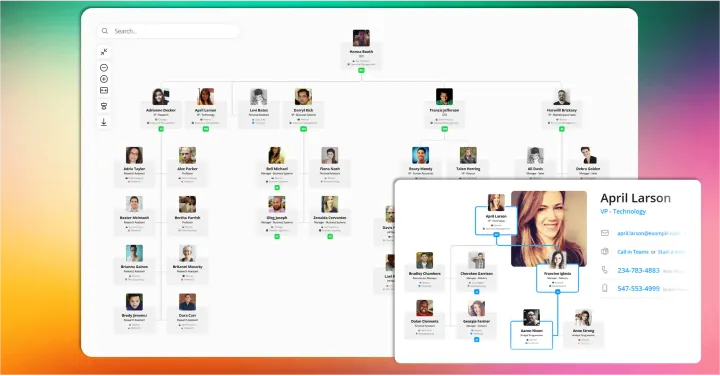6 Ways to Promote Authenticity at Work
Learn why authenticity at work matters and how to create a culture where people feel safe, respected, and free to be themselves.

Most of us wear masks at work.
The polite, professional mask when meeting new clients. The enthusiastic, can-do mask when taking on a big project. The tough, serious mask when tackling difficult issues.
But behind those masks are human beings with rich dimensions and unique perspectives. People who, when given the chance to take off those masks, can connect, create, and thrive in powerful ways.
That’s why, as leaders, one of our top responsibilities is to cultivate authenticity at work.
What is Authenticity at Work?
Authenticity at work means feeling free to express your true self without fear of judgment. This includes sharing aspects of your personality, background, values, and perspectives.
Authentic employees feel a sense of belonging and psychological safety in their workplace. They know they can candidly discuss ideas, give feedback, or raise concerns without negative consequences.
Authenticity is not about oversharing or forcing connections. It simply means having the freedom to appropriately integrate meaningful parts of yourself into your work. This builds trust, inclusion, and innovation.
Here are 6 ways to foster environments where people feel safe, seen, and valued for who they truly are:
1. Drop the Corporate Jargon, Speak Like a Human
Let’s level with each other. That corporate jargon isn’t fooling anyone. People want to connect with other humans at work, not soundbites and platitudes.
So speak openly and honestly, ask real questions, and listen intently. Give kudos when it’s deserved, and offer critiques when it’ll help them grow. Treat your team like real people, and watch the masks start to slip off.
2. Share Your Highs and Lows
We’ve all had those Tuesday morning meetings where everyone says they’re "fine" when asked how their weekend was. Then it’s down to business.
Well, try turning those check-ins into a chance for people to share what’s actually happening in their lives. Are they celebrating an anniversary? Did they finish an important project? Or are they dealing with illness, a family issue, or just plain exhaustion?
Making space for people to share their highs and lows builds empathy and trust. When you know what someone is going through outside of work, you can better understand them inside work too.
3. Ask for Input (and Really Listen)
You hired your team for their unique backgrounds, experiences, and viewpoints. So why not draw on those valuable perspectives?
Before making decisions, ask your team for input first. Whether it’s feedback on a new policy, ideas on how to improve operations or input on what people need to do their best work, listening to your team’s uncensored thoughts and feelings is crucial.
And when you ask for input, don’t just pay lip service. Really listen, with an open mind and without judgment. Make it clear all voices are valued.
4. Share Your Whole Self
Who says you have to check your personality at the office door?
Let your distinct passions, quirks, and perspectives shine through at work. Put up photos of your family and friends. Talk about your favorite sports team or TV show. Be open about your life outside work. And encourage your team to do the same.
Getting to know the human sides of your colleagues builds trust and connection. When you share your whole self, they’re more likely to do the same.
5. Be Real in Digital Spaces Too
The rise of remote and hybrid work means much of our team interaction happens online in tools like Slack, Teams, and your employee directory. It's equally important to nurture authenticity in these digital spaces.
For example, upload a photo of yourself—not a logo or avatar—as your profile image across employee directories, instant messaging platforms, and video calls. Seeing real faces, not corporate branding, helps humanize our connections.
Likewise, share personal details and fun facts about yourself in your digital profiles and email signatures. These small glimpses into your non-work life make you more relatable.
You can also encourage authenticity by:
- Sharing emojis, GIFs, and memes to inject humor into digital chats
- Sending encouraging messages or kudos to colleagues' posts
- Using video calls instead of just audio to have more personal connections
- Joining online communities, clubs, or shared interest groups with like-minded colleagues
While technology enables constant connectivity, it can also make us feel disconnected from human qualities like empathy, humor, and authentic self-expression. But with some intention, we can leverage digital tools to build more real relationships.
Little efforts to share and celebrate our quirky, multi-faceted selves online will help coworkers feel safe doing the same. And that is how we build authenticity and trust—whether in-person or digitally.
6. Ask Lots of Questions
Here’s a simple way to promote authenticity: ask lots of questions. Get curious about who people really are.
Some ideas - Ask about their talents outside work. Find out what motivates them. See what they’re passionate about. Dig into their vision for their role.
And when you uncover common ground, use it to build deeper connections.
Bringing Your Whole Selves to Work
In the end, authenticity at work is about being seen for everything you are. The good, the bad, the silly, and the serious. Instead of hiding behind masks and platitudes, people can connect as fellow humans. And when that happens, they do their best work.
So keep these tips in mind, stay genuine in your interactions, and watch as your team’s masks start to fall away. Beneath those masks is your greatest untapped resource: the fully realized potential of your people. Unlock it by fostering authenticity at work.


